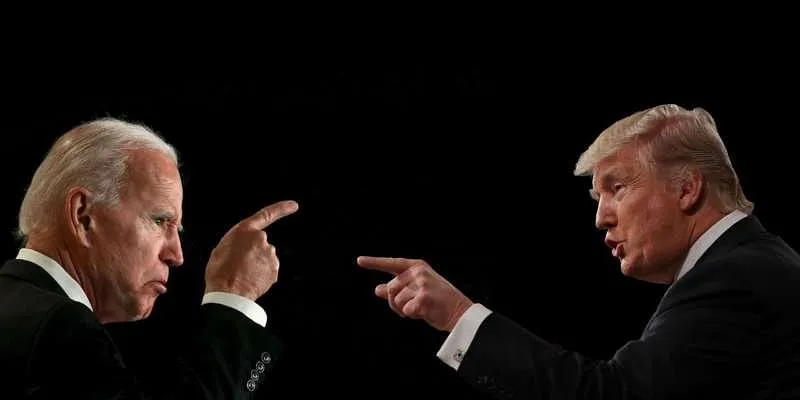President Joe Biden’s administration is rapidly going back to the traditional positions of US foreign policies on many global and regional issues though it is retaining a few changes brought in by former President Donald Trump. This was recently illustrated in what the Biden administration said on the Israel-Palestinian question. While this issue has lost the global and regional salience it once enjoyed, the Biden administration’s statement is indicative, at least in part, of the policies it will pursue in West Asia.
The fixed element of US policy on West Asia has been abiding concern and support for Israel. This was manifested fully from the end of the Second World War and the founding of the Jewish state in 1948. That development led to the exodus of the Palestinians from their hearth and home. The Palestinian cause became a firm principle of Arab nationalism which imbued much of the Arab world till the early 1970s. In 1964 the main Palestinian group, the Palestinian Liberation Organisation (PLO), was formed. It, and the forces of Arab nationalism were committed to the destruction of Israel. The Palestinian issue was also a basic divisive feature of the cold war with the Soviet Union supporting progressive Arab states and the US firmly behind Israel and on cooperative terms with conservative Arab countries.
By the end of the 1970s the forces of Arab nationalism were in retreat. Under the leadership of Saudi Arabia and post Khomeini Iran political Islam became ascendent. Lip service continued to be paid to the Palestinian cause by all Arab and Islamic countries and the non-aligned group but it was becoming increasingly clear that Israel was there to stay and that a process of accommodation of Israeli and Palestinian interests had to be found. This also became more evident after the end of the cold war in 1991. The basic question became the nature of the accommodation between Israeli and Palestinian interests; that issue has not been finally settled as yet.
Essentially, the Palestinians have, except for fringe groups, abandoned the idea of ending Israel as a state and most Israelis have accepted the idea of a Palestinian entity in Gaza and the West Bank. The question is what would be the exact nature of the Palestinian entity. Another crucial issue relates to Jerusalem? Who would control it?
Jerusalem is critical to Islam, Christianity and Judaism. It has the holy places of all three religions. After the 1967 war Israel controls Jerusalem in its entirety. Israel has from the very beginning declared it as its capital but all countries did not regard it as such. They placed their embassies in Tel Aviv. So did the US. Donald Trump had in his 2016 presidential campaign declared that, as President, he would shift the US embassy to Jerusalem. Keeping to his campaign commitment he did so in May 2018. This should have enraged the Arabs but surprisingly their protests were proforma. Significantly, Biden has not decided to reverse this decision even as he has signalled to pursue a more even-handed policy between Israel and the Palestinians. While doing so he has reiterated US’ traditional support for Israel.
These policy pronouncements were made at an open debate in the United Nations Security Council (UNSC) on January 26. The US representative said “Under the new administration, the policy of the United States will be to support a mutually agreed two state solution, one in which Israel lives in peace and security alongside a viable Palestinian state”. The US representative stressed that peace could not be imposed and that it could only be achieved through the active consultations and consent of the two sides. For this purpose, the US urged “Israel’s government and the Palestinian Authority to avoid unilateral steps that make a two-state solution more difficult, such as annexation of territory, settlement activity, demolitions, incitement to violence, and providing compensation to individuals involved in acts of terrorism”. Most significantly the representative asserted that the US will renew its relations with the Palestinian leadership which had “atrophied over the last four years”. As part of this process the US will re-open “diplomatic missions that were closed by the last US administration” and also restart assistance programmes.
Taken together these measures send a clear signal to Israel that the license Trump had given it to establish new facts on the ground to make a two-state solution impossible will not be favourably looked upon by the Biden administration. While this is fine in theory what will it amount to in practice? The US and the international community have been unable to prevent Israel from building new settlements and taken other action which impinges on Palestinian welfare in the name of Israeli security. At the same time violent activities undertaken by groups such as the Hizbollah have only consolidated the unbending attitude of Israeli hardliners. Thus, it seems unlikely if the Biden administration despite seeking to restore a semblance of balance between Israel and the Palestinians will succeed in bridging the chasm that exists between the two sides. Besides, Israel will have little incentive to pay real heed to the Biden administration approaches as it has normalised relations with some important countries such as the United Arab Emirates. In any event, it would be aware that for Biden the priority in West Asia is Iran.
It is doubtful if there will be a meaningful positive movement in the Israel-Palestinian issue despite Biden’s coming. The tides of history are not flowing towards the Palestinian cause.






